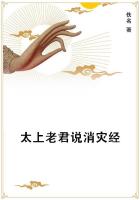When they left the Senate, Nekhludoff and the advocate walked on together, the advocate having given the driver of his carriage orders to follow them. The advocate told Nekhludoff the story of the chief of a Government department, about whom the Senators had been talking: how the thing was found out, and how the man, who according to law should have been sent to the mines, had been appointed Governor of a town in Siberia. Then he related with particular pleasure how several high-placed persons stole a lot of money collected for the erection of the still unfinished monument which they had passed that morning; also, how the mistress of So-and-so got a lot of money at the Stock Exchange, and how So-and-so agreed with So-and-so to sell him his wife. The advocate began another story about a swindle, and all sorts of crimes committed by persons in high places, who, instead of being in prison, sat on presidential chairs in all sorts of Government institutions. These tales, of which the advocate seemed to have an unending supply, gave him much pleasure, showing as they did, with perfect clearness, that his means of getting money were quite just and innocent compared to the means which the highest officials in Petersburg made use of. The advocate was therefore surprised when Nekhludoff took an isvostchik before hearing the end of the story, said good-bye, and left him. Nekhludoff felt very sad. It was chiefly the rejection of the appeal by the Senate, confirming the senseless torments that the innocent Maslova was enduring, that saddened him, and also the fact that this rejection made it still harder for him to unite his fate with hers. The stories about existing evils, which the advocate recounted with such relish, heightened his sadness, and so did the cold, unkind look that the once sweet-natured, frank, noble Selenin had given him, and which kept recurring to his mind.
On his return the doorkeeper handed him a note, and said, rather scornfully, that some kind of woman had written it in the hall.
It was a note from Shoustova's mother. She wrote that she had come to thank her daughter's benefactor and saviour, and to implore him to come to see them on the Vasilievsky, Sth Line, house No. --. This was very necessary because of Vera Doukhova.
He need not be afraid that they would weary him with expressions of gratitude. They would not speak their gratitude, but be simply glad to see him. Would he not come next morning, if he could?
There was another note from Bogotyreff, a former fellow-officer, aide-de-camp to the Emperor, whom Nekhludoff had asked to hand personally to the Emperor his petition on behalf of the sectarians. Bogotyreff wrote, in his large, firm hand, that he would put the petition into the Emperor's own hands, as he had promised; but that it had occurred to him that it might be better for Nekhludoff first to go and see the person on whom the matter depended.
After the impressions received during the last few days, Nekhludoff felt perfectly hopeless of getting anything done. The plans he had formed in Moscow seemed now something like the dreams of youth, which are inevitably followed by disillusion when life comes to be faced. Still, being now in Petersburg, he considered it his duty to do all he had intended, and he resolved next day, after consulting Bogotyreff, to act on his advice and see the person on whom the case of the sectarians depended.
He got out the sectarians' petition from his portfolio, and began reading it over, when there was a knock at his door, and a footman came in with a message from the Countess Katerina Ivanovna, who asked him to come up and have a cup of tea with her.
Nekhludoff said he would come at once, and having put the papers back into the portfolio, he went up to his aunt's. He looked out of a window on his way, and saw Mariette's pair of bays standing in front of the house, and he suddenly brightened and felt inclined to smile.
Mariette, with a hat on her head, not in black but with a light dress of many shades, sat with a cup in her hand beside the Countess's easy chair, prattling about something while her beautiful, laughing eyes glistened. She had said something funny--something indecently funny--just as Nekhludoff entered the room. He knew it by the way she laughed, and by the way the good-natured Countess Katerina Ivanovna's fat body was shaking with laughter; while Mariette, her smiling mouth slightly drawn to one side, her head a little bent, a peculiarly mischievous expression in her merry, energetic face, sat silently looking at her companion. From a few words which he overheard, Nekhludoff guessed that they were talking of the second piece of Petersburg news, the episode of the Siberian Governor, and that it was in reference to this subject that Mariette had said something so funny that the Countess could not control herself for a long time.
"You will kill me," she said, coughing.
After saying "How d'you do?" Nekhludoff sat down. He was about to censure Mariette in his mind for her levity when, noticing the serious and even slightly dissatisfied look in his eyes, she suddenly, to please him, changed not only the expression of her face, but also the attitude of her mind; for she felt the wish to please him as soon as she looked at him. She suddenly turned serious, dissatisfied with her life, as if seeking and striving after something; it was not that she pretended, but she really reproduced in herself the very same state of mind that he was in, although it would have been impossible for her to express in words what was the state of Nekhludoff's mind at that moment.
She asked him how he had accomplished his tasks. He told her about his failure in the Senate and his meeting Selenin.
"Oh, what a pure soul! He is, indeed, a chevalier sans peur et sans reproche. A pure soul!" said both ladies, using the epithet commonly applied to Selenin in Petersburg society.
"What is his wife like?" Nekhludoff asked.
"His wife? Well, I do not wish to judge, but she does not understand him."















